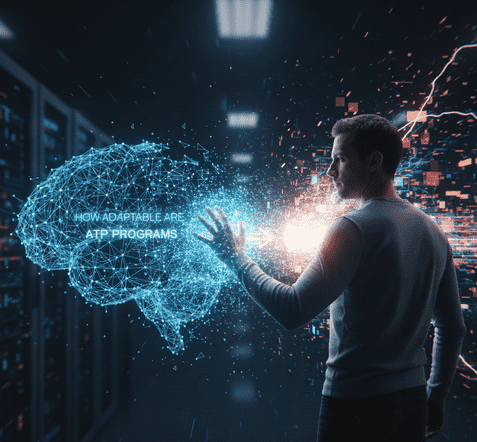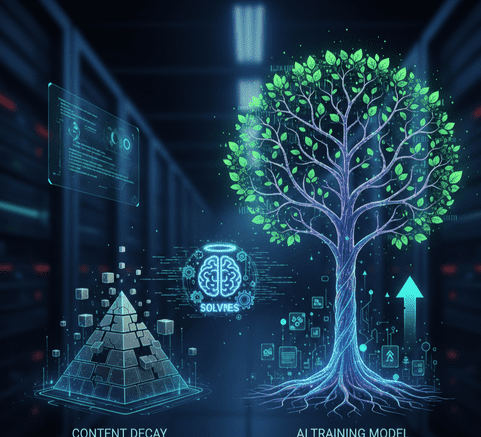Why Now is the Right Time to Launch AI Certification Programs in Your Institution
AI is the new name for operational efficiency which has led to better productivity, enhanced customer satisfaction, reduced cost, and more profit with time management. According to recent estimates, the AI market is expected to grow to $407 billion by 2027, driven by innovations across healthcare, finance, and education. This has raised the demand for AI, making it an in-demand skill for employers.
Considering the rising demand, it has become crucial for universities to offer AI certification programs that equip students with the competencies needed to thrive in an AI-influenced future.
In this blog, we will be discussing 10 compelling reasons why universities should launch AI certification programs now.
Let’s begin!
Reasons Why Universities Should Launch AI Certification Programs Now
1. Simplifying AI Builds Confidence: AI is usually an overwhelming topic for beginners but breaking down the complexity into smaller digestible chunks or modules helps significantly. Universities can help students understand the basics of AI, making it easy to understand which will build their confidence. By incorporating AI certification, universities can let students have a better hold on AI concepts, giving them a strong foundation to explore advanced topics.
The University of Helsinki launched the popular “Elements of AI” course. The course focused on simplifying AI for the masses which became popular amongst students, and the university ended up enrolling over 750,000 students worldwide. The course showed that students with no prior AI knowledge can also gain a firm understanding of the technology.
2. Preparing for Real World Challenges: Universities and academic institutions can incorporate hands-on AI projects into the curriculum and contribute towards fulfilling AI skill demand. Students can work through real-world AI challenges and enhance their problem-solving skills that employers are seeking.
The experiential learning approach teaches students how to navigate the complexities of AI development, preparing them for challenges they might face in the workforce.
MIT’s Applied AI course offers students hands-on experience by working with datasets and real AI tools, allowing them to tackle challenges as they would in industry.
3. Explore Different Tech Roles: When it comes to AI certification benefits, role-based programs give exposure to different roles within the tech ecosystem. From product managers to engineers and data scientists, students are acquainted with various departments and learn the importance of collaboration across divisions. It also helps them learn to work in teams where they realize their own strengths and career paths.
4. AI is the Next Tech Wave: With the growing market, AI is going to stay here for a long time and universities must prepare students to navigate the next tech wave. AI skills are needed in every sector, including finance, healthcare, marketing, and more. Although the area is still evolving, students must be prepared, and they should know how to capitalize on future opportunities.
5. Understanding AI Limits is Key: One critical element of any AI certification program is teaching students the limits of AI. By learning about AI’s dependence on data quality and the importance of robust datasets, students gain a realistic perspective on AI’s potential and its limitations. This knowledge empowers them to make informed decisions about the technology’s use.
6. Data Driven Decision Making: Analytics is the need of the hour which not only helps in predicting patterns and identifying trends but beyond that. AI applications heavily rely on data, probability, and statistics. Incorporating these subjects into AI certification will introduce students to the world of analytics. Universities and institutes must focus on AI curriculum development where understanding these concepts will prepare students for data-driven decision-making in their careers.
7. Build a Real Product: An essential aspect of AI certification programs is providing students with the opportunity to build and launch a real AI product. This could range from a simple machine learning model to a fully functioning AI application. By completing a tangible project, students experience the satisfaction of launching a product that could potentially be used in real-world applications.
At Stanford University, students in AI programs are given the content according to the latest standards. Studying such updated content they can create AI-driven products, including healthcare applications that assist in diagnosing diseases.
The Time is Now for AI Certification Programs
Universities are uniquely positioned to help students navigate the AI revolution. From breaking down complex AI concepts to encouraging hands-on learning, incorporating AI certification programs will provide immense value to both students and the industries they enter. With demand for AI skills soaring and the global AI market growing rapidly, universities must seize this opportunity to prepare the next generation of innovators, leaders, and problem-solvers.
By taking these steps, universities will help their students grow as professionals, making them job ready. Moreover, they will contribute to faster adoption of AI technologies across industries, ensuring not only effective but developing ethically working AI ecosystem.
If you are looking for role-based AI certifications to introduce into your curriculum, we recommend you explore different AI certification programs right here. For more information, get in touch with our team.
Recent Blogs

FEATURED
Understanding ATP Programs: A Country-Specific Guide for Training Providers
December 25, 2025
FEATURED
How Adaptable Are ATP Programs to Rapid AI Model Changes?
December 24, 2025
FEATURED
How Upcoming AI Regulations Will Impact ATP Training Models
December 24, 2025
FEATURED
The Future of Authorized Training Partner Programs After 2026
December 24, 2025
FEATURED
Solving the Content Decay Problem: The Evergreen AI Training Model
December 23, 2025

